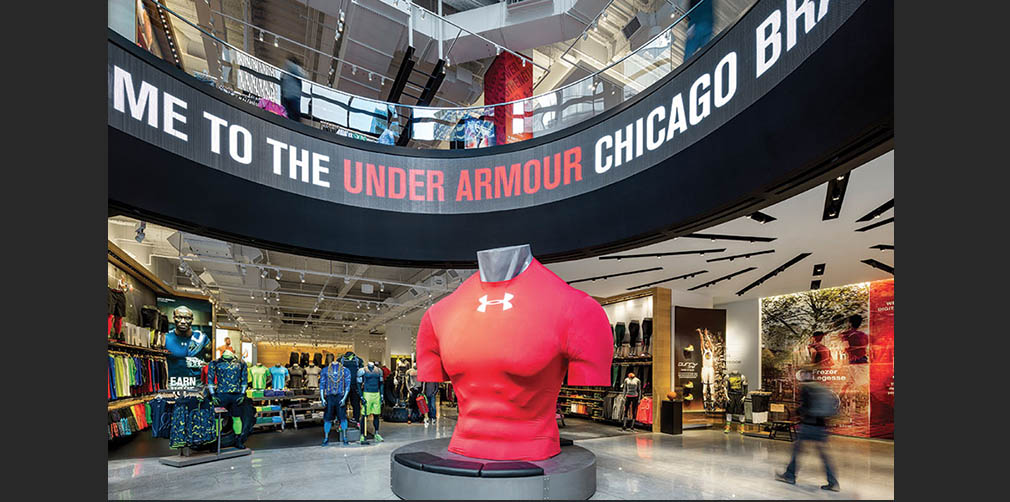Under Armour announced details for the phased reopening of its owned stores in North America. The company reopened its first U.S. stores to customers on May 15 and opened additional stores last week. By this Friday, Under Armour will have welcomed customers back to nearly 50 percent of its North America stores.
In regular consultation with government and public health officials, the company will continue to reopen additional stores on a case-by-case basis.
To prepare for and facilitate this process, Under Armour has developed strict health and safety protocols for its employees and customers.
“We are excited to begin reopening our doors in North America. Fitness and staying healthy are top of mind for our customers and we are committed to serving them safely while ensuring our teammates’ wellbeing remains our top priority,” said Under Armour President and CEO Patrik Frisk.
Steps Under Armour is taking to protect its employees and customers in reopened stores during the initial phases of the reopening include:
- Training all employees on health and safety procedures prior to reopening;
- Reducing store hours to allow time for new cleaning protocol;
- Limiting store occupancy;
- Requiring employees and customers to wear masks in the store;
- Adding hand sanitizing stations throughout the stores;
- Holding back returned products for 72 hours before returning to the floor;
- Temporarily closing all fitting rooms;
- Sanitizing payment point-of-contact between each use;
- Labeling spaces to ensure adherence with social distancing guidelines at checkout and other high traffic areas; and
- Communicating “House Rules” via posters throughout the store and announcements over the sound system.
The company will continue to evaluate store reopening decisions and evolve its health and safety protocols for its employees and customers as needed. For more information on how Under Armour is navigating through COVID-19, visit here.
Reopening decisions and protocols in countries outside of North America are being made based on local guidance and in consultation with government and public health officials in those markets.
















